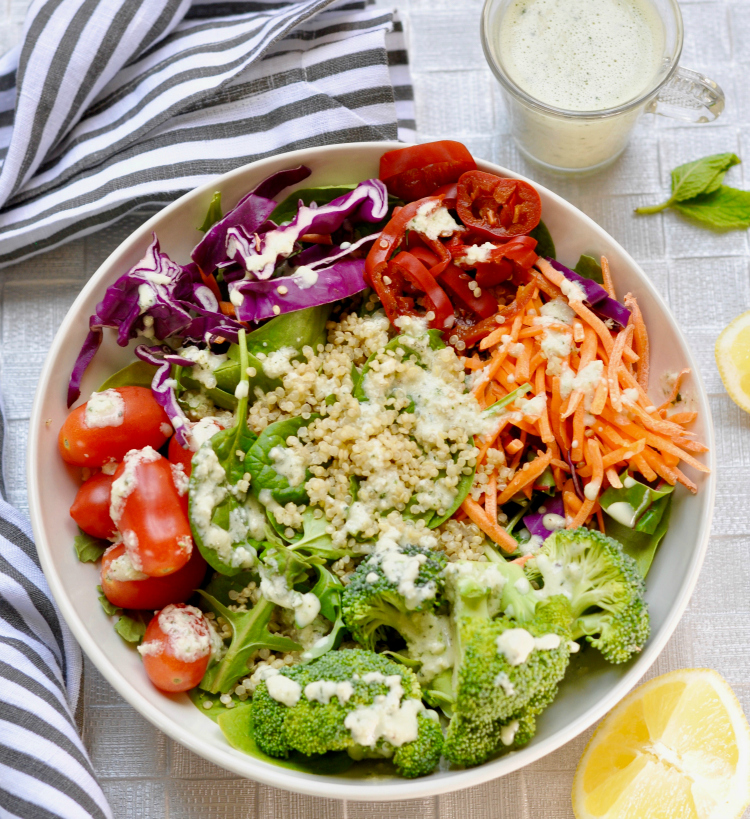
The popularity of probiotic food has skyrocketed, and manufacturers have inundated the market with all kinds of probiotic drinks, yogurt, kefir, and fermented vegetables. Unfortunately, it can be a little overwhelming.
To be honest, I didn't know much about probiotics and probiotic food before I began my research.
Here is what I discovered.
In a nutshell, probiotics are live bacteria and yeasts that contribute to your health, especially your digestive system.
Our bodies are full of bacteria, both good and bad. Probiotics are called “helpful” bacteria because they assist in keeping your gut healthy.
A healthy gut needs bacteria, but it is more like a balancing act. Limiting the harmful bacteria and encouraging the good bacteria.
Here is how it affects your skin.
Skin is the largest organ in the human body and an indicator of overall health and wellbeing. When our bodies are full of harmful bacteria from an unhealthy gut, it creates inflammation. Chronic inflammation in our bodies causes acne and other skin disruptions.
Even eczema and psoriasis, have been proven to be benefited by a healthy gut.
So, if you are not happy with your skin, one of the greatest benefits of probiotic food and a plant-based diet is a beautiful complexion.
Here is why.
Three of the most important vitamins for skin are primarily only found in plants. Those include:
Vitamin E:
Vitamin E works to block free radicals from the body, which plays a significant part in the aging process. This vitamin is essential for the maintenance of healthy skin. It also works with vitamin C to help reconstruct collagen to keep your skin youthful and firm. A diet deficient in vitamin E can result in acne.
Almonds, seeds, greens, nuts and avocado are all high sources of vitamin E. All vitamin E originates from plants.
Vitamin C:
Vitamin C is essential for the formation of collagen in the skin, and a diet deficient in vitamin C can cause scurvy which is a disease resulting from the breakdown of collagen.
The top 10 vitamin C foods are fruits and vegetables and include oranges, red peppers, kale, Brussels sprouts, broccoli, strawberries, grapefruit, guava, kiwi and green peppers. There is no vitamin C in meat.
Vitamin K:
Vitamin K is necessary for the formation of healthy skin cells and is a factor in skin problems like acne. This vitamin is found in green, leafy vegetables like romaine lettuce, Swiss chard, kale, spinach, collard greens, Brussel sprouts, broccoli, and cabbage.
Other sources of vitamin K are fermented foods like sauerkraut and kefir.
Besides eating lots of produce with vitamin E, C, and K, one of the best ways to improve your skin health is to include probiotic food in your meal plan for gut health and to reduce inflammation. There are many ways to include them in your diet.
Kefir:
Coconut milk kefir is a popular alternative to dairy milk kefir. On a cold day, add a spoonful of cocoa powder and warm it up for some delicious hot chocolate.
Sauerkraut:
Sauerkraut can be your first line of defense against various harmful bacteria or toxins that enter your body.
Kimchi:
Kimchi is a wonderful source of probiotics and is very similar to sauerkraut although richer in antioxidants.
Real Pickles:
The majority of store-bought pickles are in vinegar, but some companies make fermented pickles which contain healthy probiotics. They are also an excellent source of minerals like silica which aids the health of the skin, hair, and nails. You can find real pickles in the refrigerated section of the produce department.
Dark Chocolate:
Dark Chocolate is naturally rich in probiotics. Always buy raw and organic to avoid pesticides, chemicals, and toxins.
Probiotic Powders:
Due to the popularity of these powders, there are thousands on the market. You can add powders to smoothies, applesauce or create your own probiotic foods like today's recipe of creamy cashew probiotic dressing with lemon, mint, and basil. It was delicious!
As a general rule, a probiotic should provide at least 1 billion CFUs (colony forming units). Doses typically range from 1 billion and 50 billion. 20 billion CFU per day should be more than enough.
Look for a powder that is flavor-free and excludes, wheat, yeast, gluten, eggs, dairy, sugars, artificial colors, and preservatives.
Always read the label. Unfortunately, manufacturers can ruin a good thing like probiotics with added preservatives to extend shelf life and lots of sugar to make it taste sweet.
These powders can be pricey, but a little goes a long way. One powder packet at Whole Foods cost $1.99 and contained three teaspoons. I used 1 1/2 teaspoons of the probiotic powder for this recipe. It is also important to buy an unflavored probiotic powder.
In addition to probiotics, another key to this salad is to add lots of ingredients that boost healthy supple skin like tomatoes for vitamin C, greens for vitamin K and nuts and seeds for vitamin E. I also like to add something fermented like spicy red chilis or pickles.
Here's to healthy skin and a healthy life. Hope you enjoy this creamy probiotic cashew dressing with lemon, fresh mint, and basil as much as we did.
Don't miss any of Ordinary Vegan's plant-based recipes by signing up here.
If you want to learn more about plant-based nutrition, visit HELP – “Healthy Eating and Living With Plants” for a complete education in plant-based nutrition including everything you need to get started and maintain a plant-based diet.
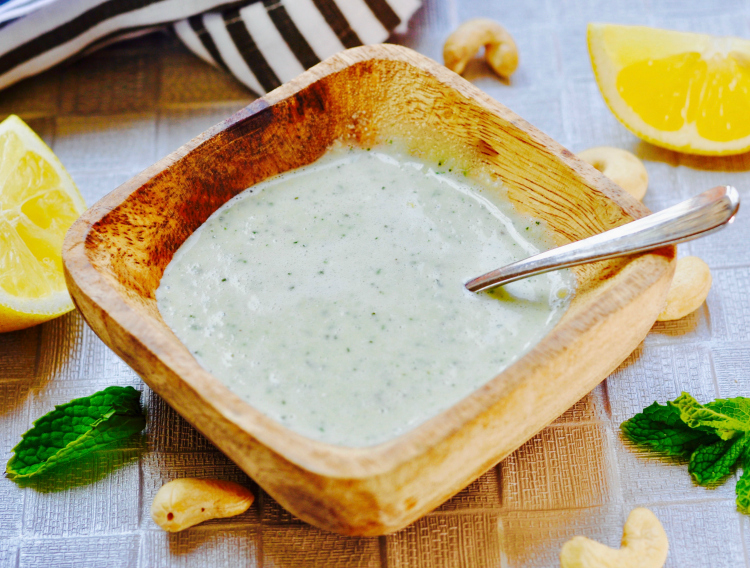
Probiotic Food For Healthy Skin
& Creamy Probiotic Cashew Dressing with Lemon, Mint & Basil
- 1 cup raw unsalted cashews, soaked for at least two hours or overnight, rinsed and drained
- 1 cup water
- 3 cloves garlic, chopped
- 3 teaspoons fresh chopped mint (or more to taste)
- 3 teaspoons fresh chopped basil (or more to taste)
- 3 tablespoons fresh lemon juice (or more to taste)
- 1½ teaspoons of unflavored probiotic powder (I like 20 billion cfu)
- ½ teaspoon salt (or more to taste)
- Fresh ground black pepper
- Put all the ingredients into a food processor and blend until smooth. Add more water if you want a thinner consistency. Taste and adjust seasoning. Serve over your favorite salad.

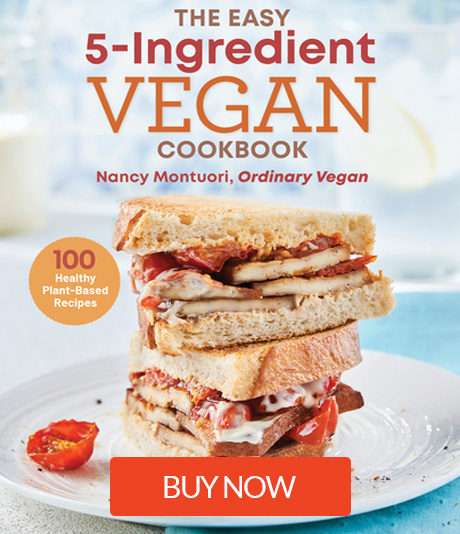
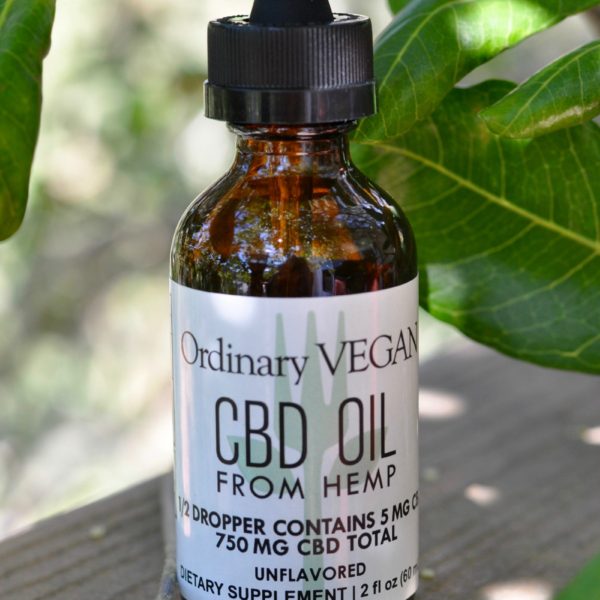
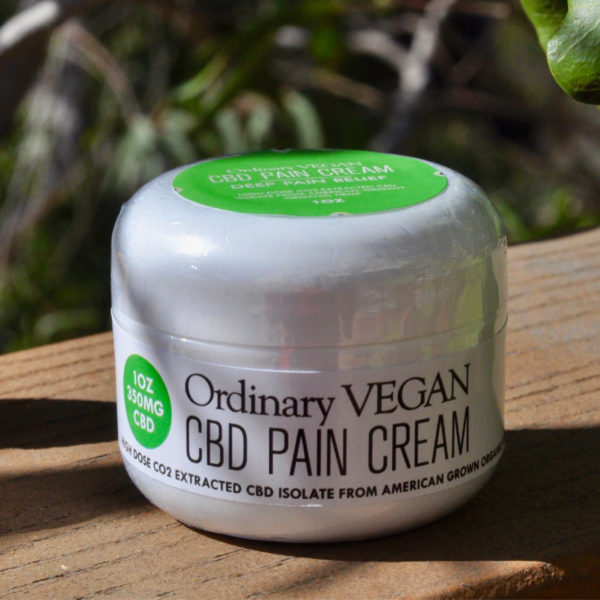
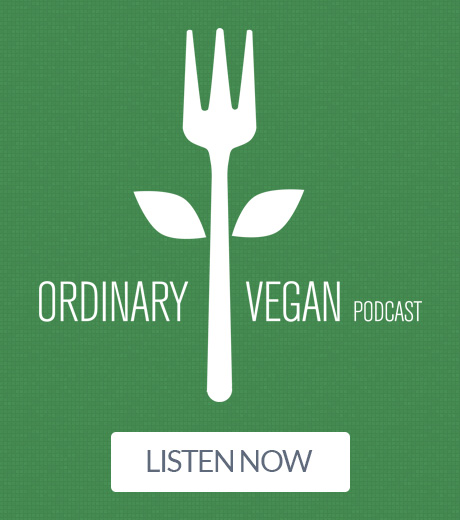
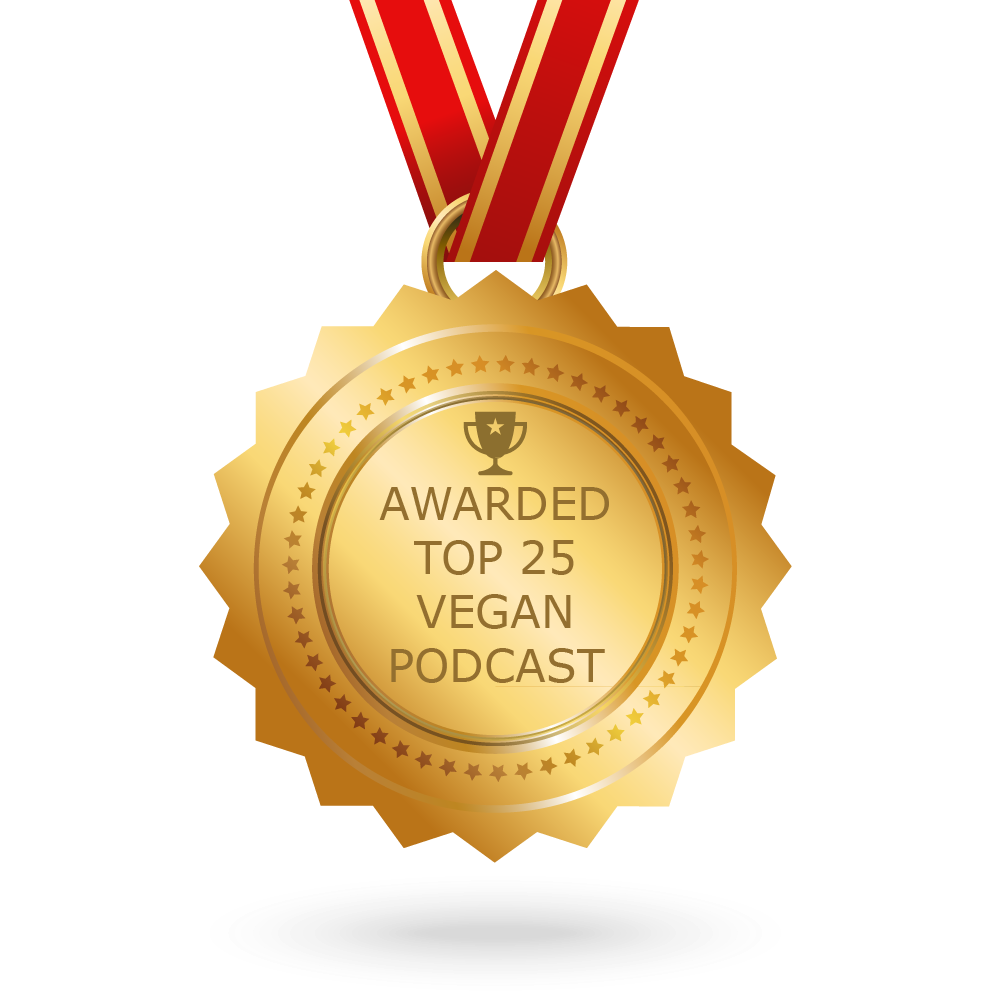

How is this recipe probiotic
Hi Leena – It tells you in the blog post – The ingredients act as probiotics and there is probiotic powder in the salad dressing. Hope that helps and thanks for stopping by! Nancy
It has probiotic powder in the recipe